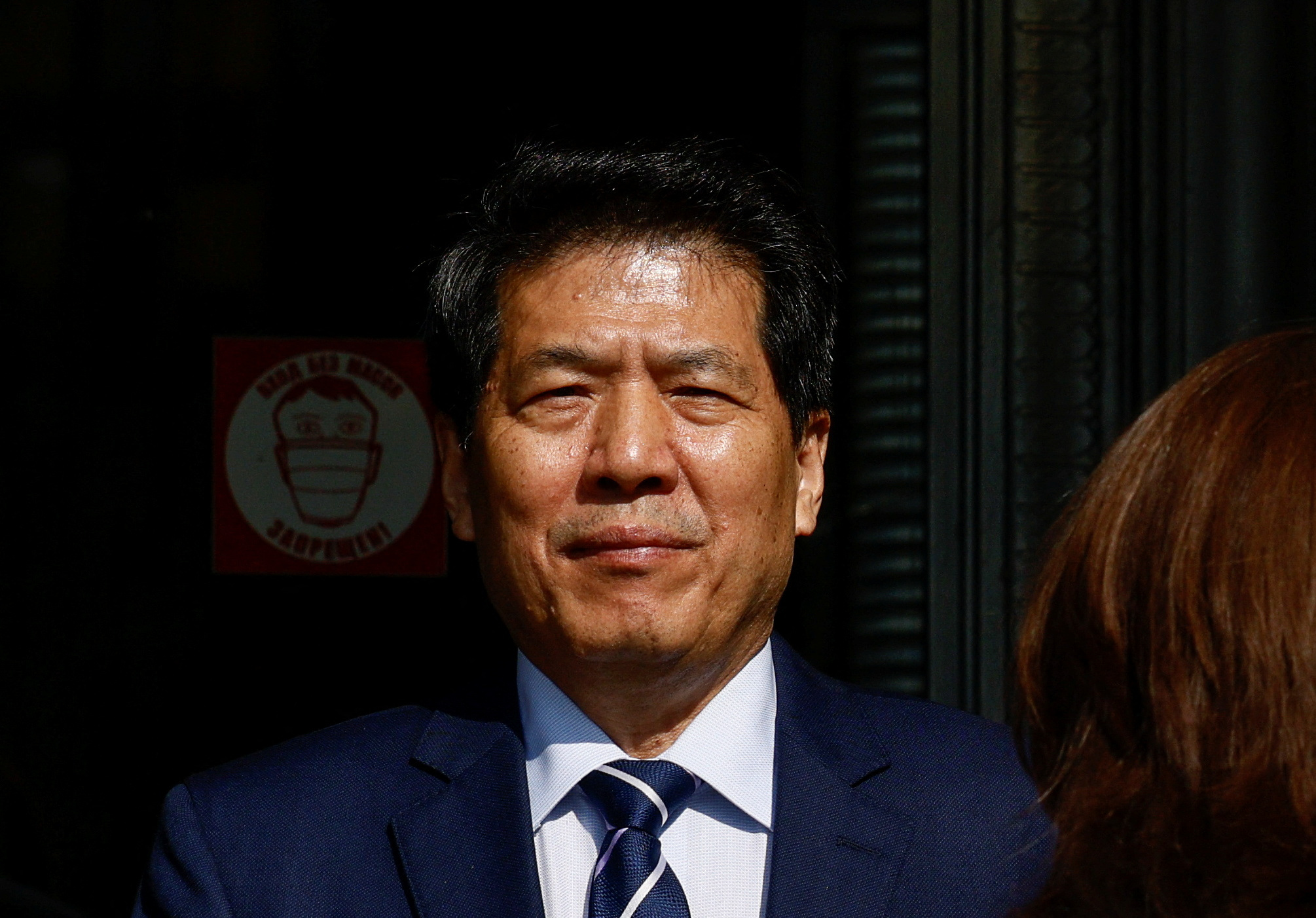Andrew Gray and Tom Balmforth

BRUSSELS/LONDON, Aug 4 (Reuters) - China on Friday said it would send a senior official to Saudi Arabia for weekend talks on finding a peaceful settlement to the war in Ukraine, a forum that excludes Russia, in a diplomatic coup for Kyiv, the West and the Saudi hosts.
Ukrainian and Western diplomats hope the meeting in Jeddah of national security advisers and other senior officials from some 40 countries will agree on key principles for a future peace settlement to end Russia's war in Ukraine.
Chinese Special Envoy for Eurasian Affairs Li Hui will visit Jeddah for the talks, China's foreign ministry said on Friday.
"China is willing to work with the international community to continue to play a constructive role in promoting a political solution to the crisis in Ukraine," Wang Wenbin, a spokesperson at the Chinese ministry, said in a statement.
China was invited to a previous round of talks in Copenhagen in late June but did not attend.
Since Russia launched its invasion of Ukraine in February last year, China has kept close economic and diplomatic ties with Russia and rejected international calls to condemn Moscow.
Ukrainian President Volodymyr Zelenskiy said on Wednesday he hoped the initiative will lead to a "peace summit" of leaders from around the world this autumn to endorse the principles, based on his own 10-point formula for a settlement.
Zelenskiy's formula includes respect for Ukraine's territorial integrity and the withdrawal of Russian troops, anathema to Moscow which claims to have annexed occupied Ukrainian territory forever.
Ukrainian, Russian and international officials say there is no prospect of direct peace talks between Ukraine and Russia at the moment, as the war continues to rage and Kyiv seeks to reclaim territory through a counter-offensive.
But Ukraine aims first to build a bigger coalition of diplomatic support beyond its core Western backers by reaching out to Global South countries such as India, Brazil and South Africa, many of which have remained publicly neutral.
Earlier this week, the Kremlin said it would keep an eye on the Jeddah meeting, while restating Moscow's position that it currently saw no grounds for peace talks with Kyiv.
"We need to understand what goals are set and what will be discussed. Any attempt to promote a peaceful settlement deserves a positive evaluation," Kremlin spokesman Dmitry Peskov said on Monday.
Western diplomats say an endorsement of all of Zelenskiy's peace formula is highly unlikely at the talks. But they want to at least get clear backing for principles enshrined in the U.N. Charter - the founding document of the United Nations - such as territorial integrity.
The U.S. and its allies also have been wary about embracing a Beijing-led peace initiative, and analysts doubted China would look to take a leading role at the conference.
"I don't see the Chinese pushing an agenda," said Jon Alterman, head of the Middle East program at the Center for Strategic and International Studies. Beijing's participation was more likely motivated by prestige and the opportunity to court Middle East and Global South countries.
SAUDI DIPLOMACY
Saudi diplomacy played a key role in urging Beijing to attend the Jeddah talks, a German official said.
Saudi state news agency SPA on Friday said the kingdom anticipated the meeting would reinforce "dialogue and cooperation... to ensure a solution for the crisis through political and diplomatic means".
Ukrainian and Western officials said Riyadh wants to play a prominent diplomatic role.
The gathering is more palatable to Beijing with Saudi Arabia as host since it will not be seen as engineered by the West, said Yun Sun, director of the China Program at the Stimson Center in Washington.
A senior European Union official said Saudi Arabia reached "into parts of the world where (Ukraine's) classical allies would not get to as easily".
In seeking to win over Global South countries, Western officials said they will stress that food prices have jumped since Russia quit a deal to allow safe passage of Ukrainian grain through the Black Sea and carried out a string of air strikes on Ukraine's ports.
"We'll be for sure making this point and loud and clear," another senior EU official said.
Additional reporting by the Beijing newsroom, Thomas Escritt, Olena Harmash, Carien du Plessis, Gabriela Baczynska, Daphne Psaledakis, Michael Martina, David Brunnstrom, Laurie Chen, Martin Pollard, the Dubai newsroom and Angus McDowall; Editing by Jon Boyle, Peter Graff and Cynthia Osterman
No comments:
Post a Comment